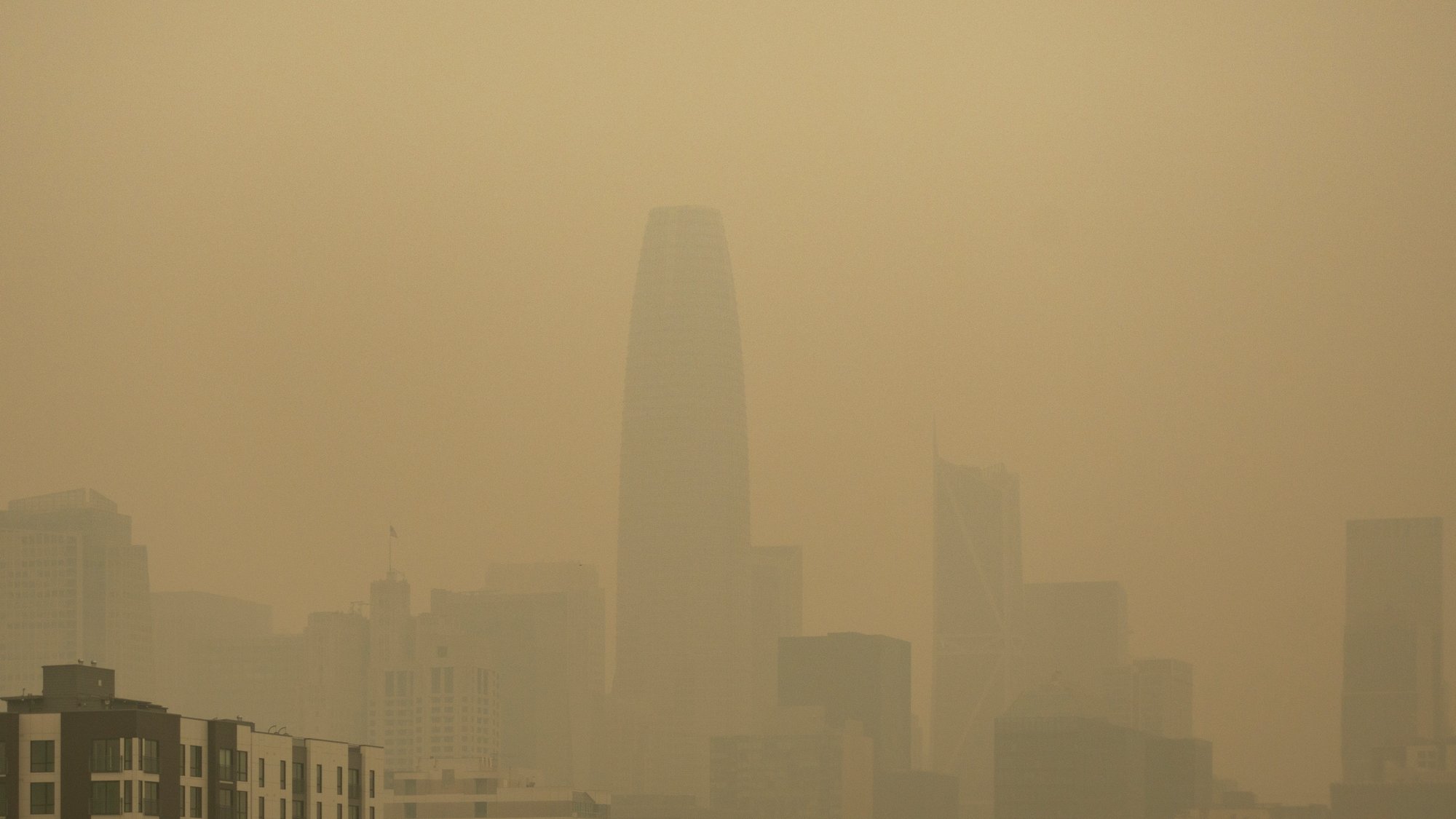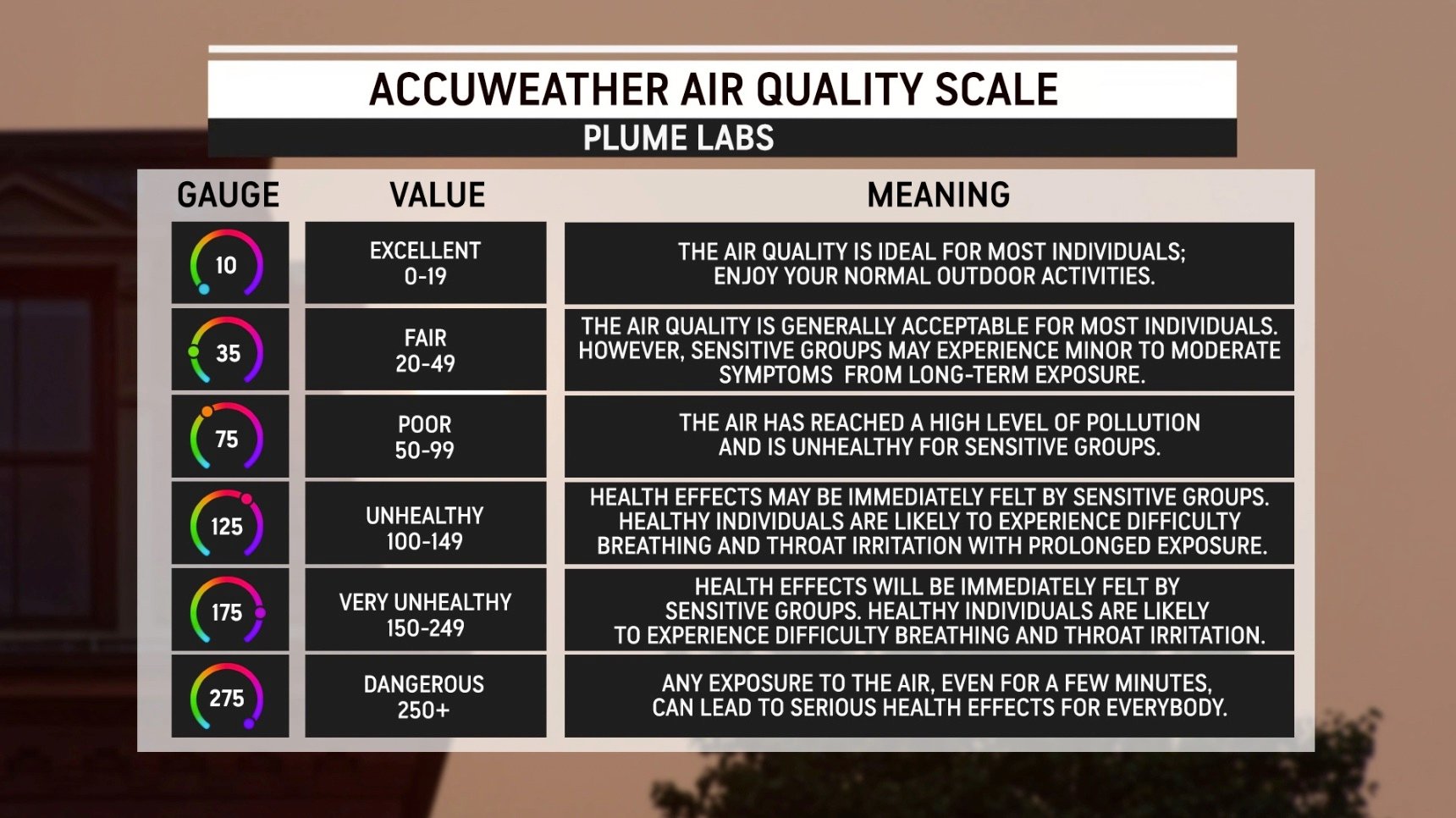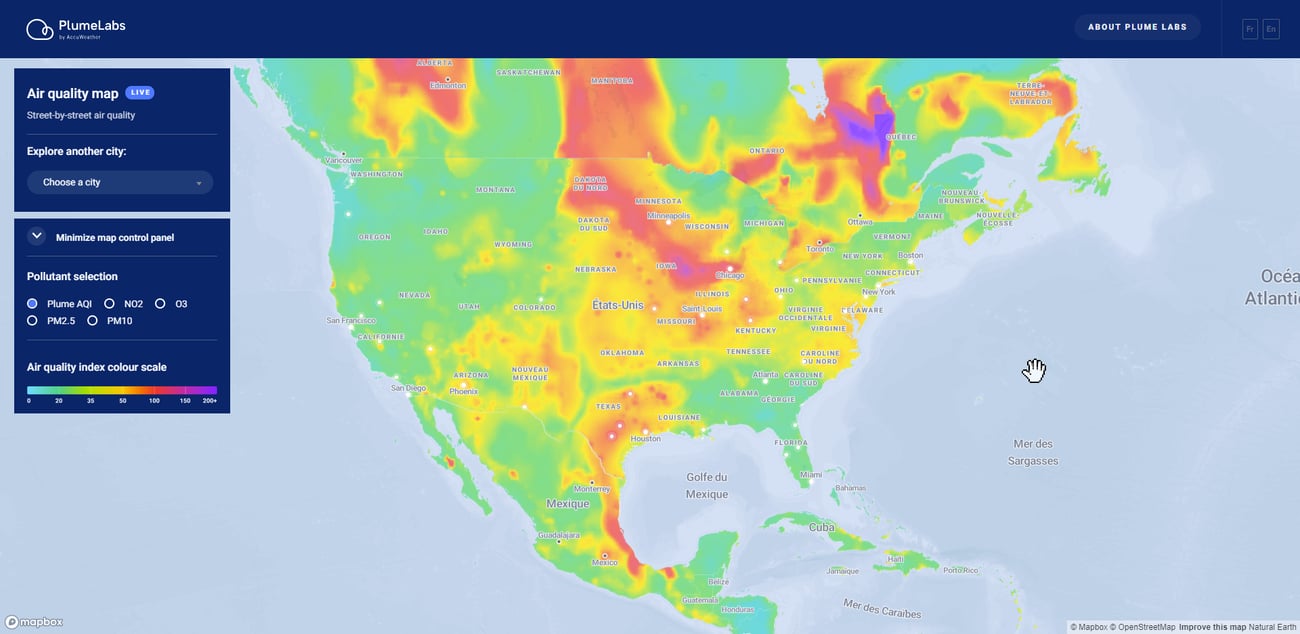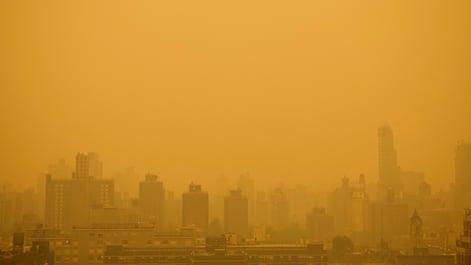The Air Quality Index and its impact on businesses

Summary
Gain insights into the Air Quality Index (AQI), its impact on businesses, and how poor air quality affects customers and employees.
Key Highlights
Understand the Air Quality Index (AQI) and what it means for outdoor workers
Discover how businesses can gauge the pollution levels and associated health risks
Explore how AccuWeather for Business and Plume Labs provide valuable resources to help businesses navigate and mitigate the impact of poor air quality
Air quality is vital to our daily lives. The average person breathes in approximately 3,400 gallons (about half the volume of a large U-Haul truck) of air daily. However, when the air we breathe is polluted, it can have severe consequences on our health, especially for those who work outdoors. Understanding air quality and its implications is crucial for businesses to protect their employees and customers.
Understanding the Air Quality Index (AQI):
The Air Quality Index (AQI) is a valuable indicator for assessing air quality quickly. It consolidates the concentration values of various pollutants and their health impacts into a single value. Using the AQI, businesses can easily gauge the pollution levels and associated health risks for their workers. A higher AQI value indicates more polluted air and greater health hazards, while a lower AQI value suggests cleaner air with minimal health impacts.
Determining poor air quality:
In extreme cases, poor air quality becomes evident through smoke, smog or haze, often accompanied by an unpleasant odor. However, situations with less noticeable pollution require reliable measures to identify poor air quality. In collaboration with AccuWeather, Plume Labs recognized the limitations of existing AQIs and developed a universal Air Quality Index. This index is based on extensive research, including updated World Health Organization (WHO) recommendations. The Plume AQI is the scientific foundation for the AccuWeather Air Quality Scale, which helps businesses make informed decisions regarding clean-air initiatives.
The AccuWeather Air Quality Scale:
The AccuWeather Air Quality Scale builds upon the Plume AQI, offering six color-coded categories to facilitate easy comprehension and decision-making.

The categories, each associated with specific exposure limits, are as follows:
- BLUE/GREEN - Excellent: The air quality is ideal, and normal outdoor activities can be enjoyed.
- YELLOW - Fair: The air quality is generally acceptable, but sensitive groups may experience minor to moderate symptoms from prolonged exposure
- ORANGE - Poor: High pollution levels pose health risks for sensitive groups. It is advisable to reduce time spent outdoors if experiencing symptoms such as difficulty breathing or throat irritation.
- RED - Unhealthy: Sensitive groups may immediately feel health effects, while healthy individuals may experience breathing difficulties and throat irritation with prolonged exposure. Limiting outdoor activity is recommended
- FUCHSIA - Very Unhealthy: Sensitive groups should avoid outdoor activities, as immediate health effects are highly likely. Even healthy individuals may encounter breathing difficulties and throat irritation, necessitating consideration of indoor activities
- PURPLE - Dangerous: Exposure to the air, even for a few minutes, can result in severe health consequences for everyone. Outdoor activities should be strictly avoided
>>READ MORE: AccuWeather's Forecasts Alert Businesses to Unhealthy Air Quality, Keeping Workers Safe
Air Quality Index and the impact on industries
The Air Quality Index (AQI) is crucial in assessing and managing air pollution levels across various industries.
- Healthcare Industry: Monitoring air quality to protect patients, particularly those with respiratory conditions. Taking necessary precautions and adjusting treatment plans based on AQI readings.
- Tourism and Recreation: Using the AQI to assess outdoor conditions and ensure visitor safety. Making informed decisions about operations, such as scheduling outdoor activities or adjusting itineraries.
- Construction and Manufacturing: Implementing measures to minimize emissions and reduce the environmental impact. Protecting workers' health by monitoring the AQI and taking appropriate precautions.
- Transportation and Logistics: Planning routes and schedules based on air quality conditions. Prioritizing driver safety and minimizing exposure to poor air quality.
How AccuWeather For Business can help
During periods of poor air quality, businesses can rely on services provided by AccuWeather For Business and Plume Labs to ensure the well-being of their employees and customers. AccuWeather For Business offers real-time air quality alerts and updates, enabling businesses to make informed decisions about outdoor operations and employee activities.

If your business employs outdoor workers or is in an industry that requires air quality alerts to determine operations, let's talk about how AccuWeather For Business's Air Quality Alerts can help protect your workers and customers. Contact us today.







